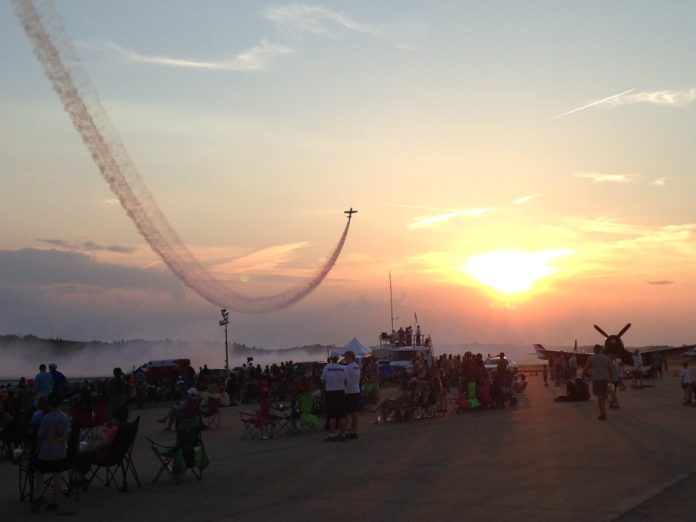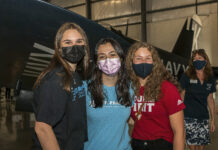Two years ago, the leadership of ICAS and the ICAS Foundation decided to increase their level of cooperation to serve the larger needs of the air show community. The two organizations signed a strategic alliance agreement. The Foundation made some important changes to its bylaws to bring them into closer alignment with the ICAS bylaws. The Foundation has assumed a much more visible role in the annual ICAS Convention. And the two boards have been communicating more frequently with one another.
The changes that have occurred so far have been largely administrative and organizational…an effort to reposition ICAS and the Foundation to do things together for the industry that they never could have done on their own.
Why the change?
Air shows, performers and support service providers are typically focused on the day-to-day tasks required to run their businesses successfully: selling tickets, booking shows, pitching sponsors, practicing, finding new customers, planning for the next event. Long-term planning is something that is squeezed in between the immediacy of pressing priorities, if at all. And the long-term challenges facing the entire industry are not something on which most ICAS members are able to focus or spend time.
More than a half century ago, ICAS emerged as a tool to help the air show community look beyond the immediacy of this week, this month, this quarter. Initially, the group focused on insurance, air show scheduling issues and making sure that the U.S. Department of Defense continued paying for the fuel used by military aircraft at air shows.
It wasn’t long before much of the energy of ICAS and its leadership was focused on the annual convention which became an important tool for learning, networking and planning for the upcoming air show season. For more than 25 years, the event was the principal focus of the organization and an enormously helpful tool to generations of air show professionals.
But, eventually, ICAS evolved to meet other needs of the North American air show community…needs that could not be met by the convention.
For example: in the winter of 1991, facing a sharp and unsustainable spike in the number of air show fatalities during the preceding three years, ICAS assumed principal responsibility for administering the Aerobatic Competency Evaluation program. Since then, the accident rate has decreased significantly and continues to drop under ICAS leadership.
Following the terrorist attacks of September 11, 2001, ICAS took the lead in coordinating with federal officials to once again schedule and conduct air shows.
In 2013, our business was brought to its knees by a dysfunctional federal government that barely noticed the unintended consequences that sequestration had on our air show community. ICAS took the lead in explaining the damage being done and the broader impact of an unhealthy air show community. Five years later, the North American air show industry has largely recovered from the deprivations and challenges of sequestration…in large part because of the work done by ICAS during the spring, summer and fall of 2013.
And just last year, ICAS took an aggressive position in advocating against a proposal to privatize the air traffic control system in the United States, a pet project of the airlines that would have had a devastating impact on our business. In close cooperation with a number of other general aviation organizations, ICAS fought for the interests of its members and won.
The ICAS Convention is still the most important program that ICAS offers, but it’s now complemented by important work that the organization does on advocacy, communications, and education.
Increasingly, however, a number of long-term threats to our industry have emerged. And addressing those threats will require new tools.
We must attract a younger demographic to our industry, both as spectators and as air show professionals. We must work to make air shows relevant in both the communities where they are held and in the larger aviation community. We must position our events to be at least as attractive to prospective spectators and corporate sponsors as the other events that compete for the time and money of our potential customers.
The ICAS and Foundation Boards of Directors have agreed that the two organizations can better respond to these 21st century threats by working together. While ICAS members continue to pay attention to the short term needs of their air show businesses and ICAS addresses problems and opportunities facing the entire industry during the short- and mid-term, ICAS and the Foundation will be building a new partnership that addresses the long-term threats and opportunities facing our air show community.
Where will the next generation of air show performers, event organizers and support service providers come from?
How can standards and best practices within the air show community be developed and institutionalized so that the entire industry becomes stronger, more professional and more sustainable?
How will we adjust the product we present to the public and the manner in which we present it to them so that our events continue to be attractive to new generations of prospective customers as Baby Boomers and Generation Xers stop attending air shows?
How can we make our events more relevant and important to the communities in which they are held?
How can air shows help the aviation community address the staggering requirements it will have for more pilots and maintainers during the next 20-30 years?
These are important and complicated questions with no easy answers. But, during the last two years, ICAS and the Foundation have remade their relationship for the purposes of tackling these big, existential challenges. The two organizations now stand ready to begin the process of finding answers even as they continue to provide the programs and services you have come to expect from both.
As we begin this new chapter in the evolution of ICAS and the ICAS Foundation, I hope you will support the work that they are doing and contribute to our collective effort to ensure the long-term health and sustainability of our air show business.








